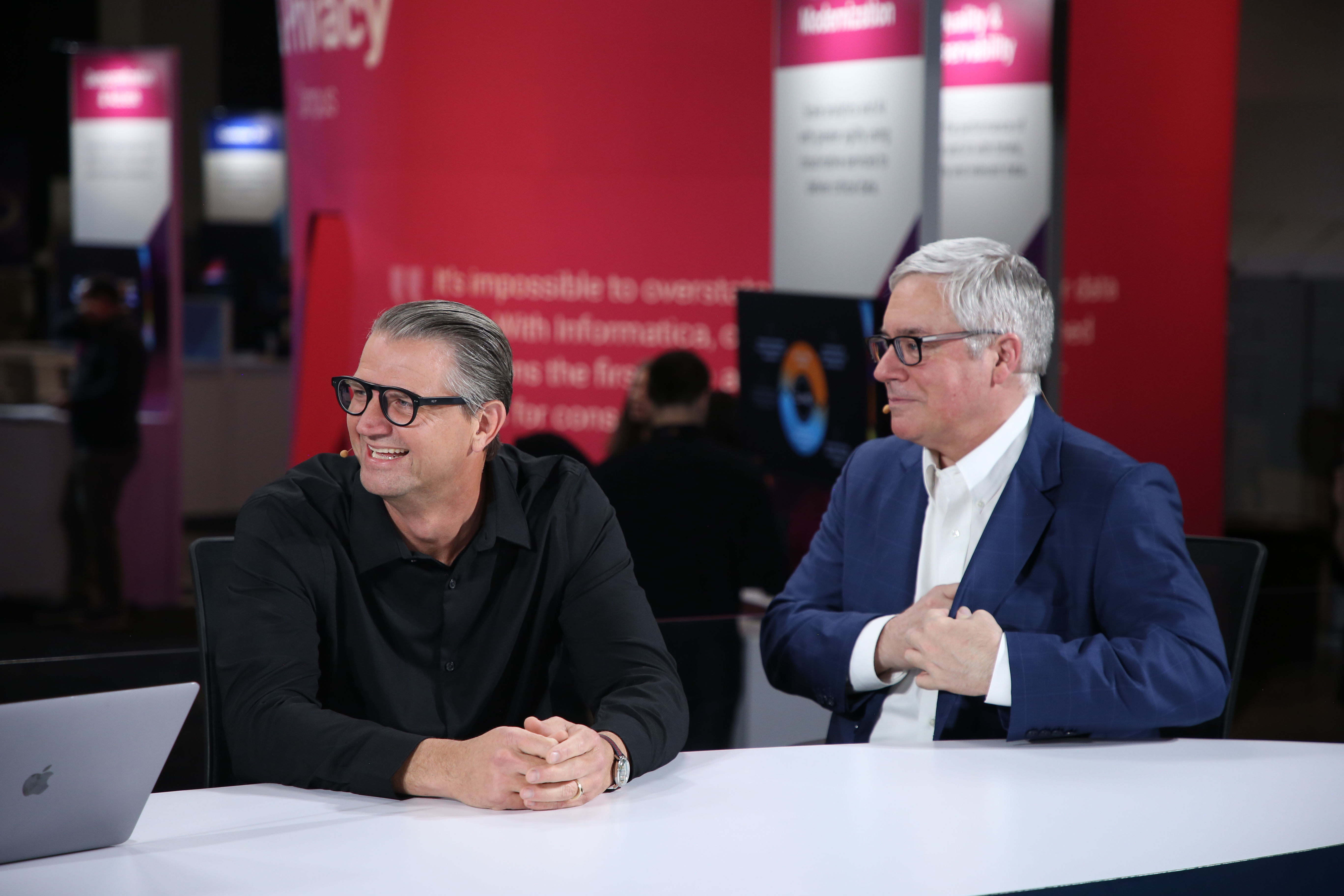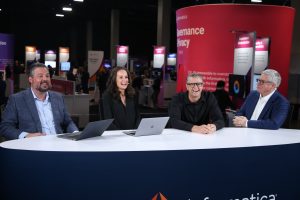 AI
AI
 AI
AI
 AI
AI
Healthcare is a crucial metric in any quality-of-life discussion. Summarily, cross-sector efforts are underway to bring generative artificial intelligence capabilities to health-related use cases.
What tangible results have come of those efforts to alleviate pain points in medical data analysis, patient care and overall health service delivery?

Live at Informatica World with Informatica’s Richard Cramer and Microsoft’s Austin Walsh.
“More than 80% of the meaningful healthcare data is captured in free text,” said Richard Cramer (pictured, right), chief strategist of healthcare and life sciences at Informatica Inc. “It’s very inaccessible and very difficult for people to process. One of the things [gen AI] does incredibly well is summarize. [It’s a huge] opportunity to take those huge volumes of text and create meaningful, consumable clinical summaries for a clinician … that you otherwise couldn’t have.”
Cramer and Austin Walsh (left), managing director of U.S. healthcare data and AI at Microsoft Corp., spoke with theCUBE’s Rebecca Knight and Rob Strechay at Informatica World, during an exclusive broadcast on theCUBE, SiliconANGLE Media’s livestreaming studio. They discussed the future of healthcare, enriched by AI, which promises to be more efficient, personalized and patient-centric. (* Disclosure below.)
With traditional natural language processing methods, such as lemmatization, falling short — being too cumbersome and inefficient — gen AI’s summarization strengths are key to unlocking new insights within health data. Consequently, it’s also improving diagnostic accuracy and streamlining clinical workflows, addressing the long-standing challenge of data fragmentation and inconsistency.
“What we’re trying to do is take these large language models and make them available to customers in a secure way where your data is your data,” Walsh said. “It’s not going to be used to train the foundational model, where you can use the OpenAI models, but also the open-source models like Mistral or Llama 3 for Meta.”
As the healthcare industry advances with AI, one nagging issue is the state of data readiness. As a result of fragmentation, there’s an urgent need to ensure data quality before training AI models, as flawed data can lead to magnified inaccuracies. Despite the excitement around AI, epitomized by advancements from companies such as Microsoft, the foundational step remains ensuring that the data used to train AI models is accurate and well-prepared, according to Cramer.
“All you’re going to do is take really poor data and magnify the effect of it by putting it into an AI algorithm,” he said. “That desire, that need, the urgency to actually make sure you get your training data right … delivers the value.”
Here’s the complete video interview, part of SiliconANGLE’s and theCUBE Research’s coverage of Informatica World:
(* Disclosure: Informatica Inc. and Microsoft Corp. sponsored this segment of theCUBE. Neither Informatica and Microsoft nor other sponsors have editorial control over content on theCUBE or SiliconANGLE.)
Support our open free content by sharing and engaging with our content and community.
Where Technology Leaders Connect, Share Intelligence & Create Opportunities
SiliconANGLE Media is a recognized leader in digital media innovation serving innovative audiences and brands, bringing together cutting-edge technology, influential content, strategic insights and real-time audience engagement. As the parent company of SiliconANGLE, theCUBE Network, theCUBE Research, CUBE365, theCUBE AI and theCUBE SuperStudios — such as those established in Silicon Valley and the New York Stock Exchange (NYSE) — SiliconANGLE Media operates at the intersection of media, technology, and AI. .
Founded by tech visionaries John Furrier and Dave Vellante, SiliconANGLE Media has built a powerful ecosystem of industry-leading digital media brands, with a reach of 15+ million elite tech professionals. The company’s new, proprietary theCUBE AI Video cloud is breaking ground in audience interaction, leveraging theCUBEai.com neural network to help technology companies make data-driven decisions and stay at the forefront of industry conversations.